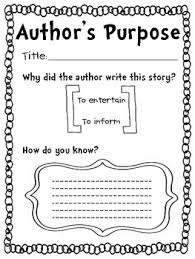Generally, ACT English tests two things: grammar and reading comprehension. Author main goal is a specific type of reading comprehension question that appears frequently on the ACT. Having a systematic approach to correctly answer these questions will boost your score and help you maximize your limited time to complete the ACT English section. Read this article for a thorough explanation of and guidance on how to figure out author main goal questions.
Justin Berkman
Recent Posts
How Often Is NO CHANGE the Right Answer on ACT English?
On the ACT English section, in the majority of questions, the first answer choice is “NO CHANGE." The “NO CHANGE” answer choice indicates that the underlined word or phrase is correct. Sometimes, students are hesitant to select “NO CHANGE” because they think that there should be an error.
In this article, I’ll explore the frequency of correct “NO CHANGE” answers to give you an idea of how often the “NO CHANGE” answer will be the right one. Furthermore, I’ll let you know how to use this information.
On the identify the error subsection of SAT Writing, you may have noticed that there is always a “No Error” option. On the sentence improvement subsection, answer choice A will always be the same as the underlined portion of the original sentence.
Have you ever wondered how often the given sentence on the multiple choice SAT Writing questions will be right? Many students fear the “no error” option, but it is sometimes the right answer. In this article, I’ll explore the frequency of correct no error answers.
Author technique is a specific type of reading comprehension question that appears frequently on the ACT English section. Author technique questions require you to analyze a specific sentence and determine if it fulfills an author's stated purpose.
Read this article for a thorough explanation of author technique and guidance on how to figure out author technique questions.
Adjectives vs Adverbs for ACT English: Grammar Rule
You may recall the good ol’ days of elementary school when you learned about adjectives and adverbs. If you had realized that you would have to know about these parts of speech for the ACT, perhaps you would have paid better attention instead of daydreaming about Nickelodeon and The Disney Channel. Don’t worry. If you’ve forgotten or never learned about these parts of speech, I’ll teach you everything you need to know about them for the ACT English section.
Parallel Structure for ACT English: Grammar Rule
Parallel structure is a grammar rule that is often referenced yet often misunderstood. After reading this article, you’ll comprehend parallel structure and be able to correctly answer ACT English questions that test your knowledge of parallel structure.
Because you will most likely see parallel structure questions on the ACT, let’s learn this rule and raise your ACT English score.
Wordiness and Redundancy in ACT English: Tips and Practice
ACT English tests you on a number of specific grammar rules. Being able to understand and apply these rules will help you maximize your ACT English score. Besides knowing specific grammar rules, there are some general strategies to keep in mind that will help you correctly answer more questions.
One of these tips is that the ACT prefers shorter sentences. Wordiness and redundancy are common errors on the ACT English section. The goal for each sentence is to express the same information in the shortest grammatically correct way.
Wordiness and Redundancy in SAT Writing Questions
A general rule to follow when answering SAT Writing questions is that the given sentence should be written in the most concise grammatically correct way. Often, especially in sentence improvement questions, the error in a sentence is only that the sentence is too wordy. Similarly, sometimes specific words in a sentence can be eliminated because they are superfluous. Wordiness and redundancy are common errors on the SAT Writing section, and I will be explaining how to identify and correct these errors.
Adjectives vs Adverbs in SAT Writing: Practice + Tips
You may recall the good ol’ days of elementary school when you learned about adjectives and adverbs. If you had realized that you would have to know about these parts of speech for the SAT, perhaps you would have paid better attention instead of daydreaming about Nickelodeon and The Disney Channel.
Don’t worry. If you’ve forgotten or never learned about these parts of speech, I’ll teach you everything you need to know about them for the SAT Writing section.
Pronoun Case on ACT English: Tips and Practice Questions
Pronoun case is a grammar rule that tends to be broken by most English speakers. Perhaps of more concern to you, questions that test your knowledge of pronoun case often appear on the ACT. Master this rule and you'll be one step closer to mastering the ACT English section.
There are multiple pronoun rules that are tested in ACT English. This one is relatively straightforward and tends to be tested less often than ambiguous antecedents or pronoun antecedent agreement. However, if you are aiming for that 30+ score, you should be ready if you encounter a pronoun case question.We get to add to our grammar knowledge. Get excited! Parallel structure questions on the SAT Writing section are fairly common. Fortunately, parallel structure is a somewhat easy to comprehend grammatical rule. Once you understand the rule, you should be able to correctly answer any parallel structure question on the SAT.
So, let’s master another rule and boost your SAT Writing score with these tips and strategies.
Idiom questions on the SAT are different than most of the other grammar questions. Why? Idiom questions can't be figured out by applying a specific rule. You have to rely on your general knowledge of English and your familiarity with certain phrases. Because you’re likely to encounter a couple of idiom questions on the SAT Writing and Language subsection, I’ll provide you with some information about idioms that should help you raise your SAT score.
Idiom questions on the ACT are different from the other grammar questions on the ACT. Why? Idiom questions don’t conform to specific rules. You have to rely on your intuitive grasp of English and your familiarity with certain phrases.
Because you’re likely to encounter at least a few idiom questions on the ACT English test, I’ll provide you with some information about idioms that should help you raise your ACT English score.
Pronoun Case on SAT Writing: Tips and Practice Questions
Are you ready for more grammar fun? Pronoun case is a grammar rule that is regularly tested on the SAT. You know the drill: Learn the SAT Writing rule and you'll raise your score.
There are multiple pronoun rules that are tested in SAT Writing. This one is relatively straightforward and tends to be tested a little less often than the others. However, you will most likely see at least one or two pronoun case questions on the SAT. Let's master this rule, learn tips and strategies to solve these questions, and get you one step closer to your target score.Subject-Verb Agreement for ACT English: Tips and Practice
In this article, we shall delve into the fun-filled world of subject-verb agreement on the ACT. Subject-verb agreement questions on ACT English are less common than punctuation questions; however, you can count on having at least a couple of subject-verb agreement on your ACT English section, so understanding this grammatical rule can easily help you improve your ACT English score.
While the grammar rule itself is relatively simple, the questions related to it can be challenging and a bit tricky. In this article, I’ll teach you strategies and tips to become a master of all things subject-verb agreement on the ACT.
























